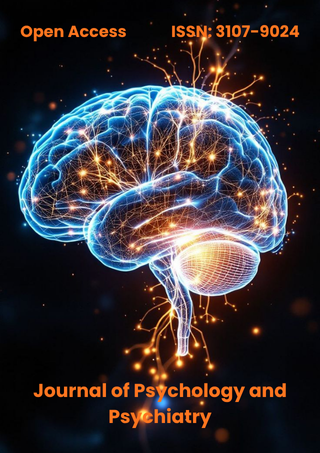ABSTRACT
For decades, our understanding of the human mind felt like trying to map a vast, intricate galaxy with a telescope. We could see the brightest stars—observable behaviors and reported emotions—but the underlying forces and intricate connections remained shrouded in mystery. Treatments, while helpful for many, often operated on general principles: talk therapy to reframe thoughts, medications to adjust brain chemistry. Today, mental science is in the midst of a seismic shift. We are no longer just stargazing; we are launching probes. A convergence of technology, bold new treatments, and a fundamental rethink of what mental health means is advancing the field at an unprecedented pace, moving us from a model of managing illness to one of fostering wellness and even predicting prevention.
Keywords: Mental health innovation; Precision psychiatry; Artificial intelligence in mental health; Functional MRI (fMRI); Brain imaging; Machine learning in psychiatry; Digital therapeutics; Wearable technology; Psychedelic therapy; Psilocybin and MDMA; Neuromodulation
The New Toolkit: Seeing the Unseeable
The most visible drivers of this advancement are technological. For the first time in history, we have tools that allow us to observe the brain in action and decode its complex patterns.
Precision Imaging:
Advanced functional MRI (fMRI) scans now go far beyond static brain images. They can map neural networks in real-time, showing how different regions of the brain communicate when we feel fear, sadness, or joy. This helps researchers identify specific brain circuit malfunctions linked to disorders like depression or OCD, moving beyond vague labels to more precise biological understanding.
The AI Psychiatrist:
Artificial intelligence is revolutionizing diagnosis and treatment planning. By analyzing massive datasets—from brain scans and genetic information to speech patterns and smartphone usage—machine learning algorithms can identify subtle signs of mental health challenges long before a crisis occurs. AI can also help clinicians determine which treatment (a specific type of therapy, a particular medication) is most likely to work for an individual, reducing the painful trial-and-error process so many patients face.
Wearables and Apps:
The wellness tracker on your wrist is becoming a window into your mental state. By monitoring sleep patterns, heart rate variability, physical activity, and social engagement, these devices can provide objective data on your well-being. Coupled with sophisticated digital therapeutics—apps that deliver proven Cognitive Behavioral Therapy (CBT) or mindfulness exercises—care is becoming continuous and accessible, breaking down barriers of cost and location.
Rethinking Treatment: From Chemicals to Consciousness
Alongside new tools are revolutionary new approaches to healing.
The Psychedelic Renaissance:
Once relegated to the fringes of science, substances like psilocybin (from "magic mushrooms") and MDMA are now undergoing rigorous clinical trials with stunning results. When administered in controlled therapeutic settings, these compounds appear to help "reset" neural pathways, allowing patients with severe PTSD or treatment-resistant depression to break free from rigid, negative thought patterns and process trauma more effectively.
Neuromodulation 2.0:
Techniques like Transcranial Magnetic Stimulation (TMS), which uses magnetic fields to stimulate nerve cells in the brain, are becoming more targeted and effective. The next generation of interventions, like Deep Brain Stimulation (DBS), offers hope for the most severe cases by directly modulating the faulty circuits believed to be responsible for conditions like Parkinson's disease and severe OCD.
A Fundamental Shift in Perspective
Perhaps the most profound advancement is not a tool or a treatment, but a change in philosophy.
From Generic to Personalized:
The old "one-size-fits-all" model is crumbling. The new goal is precision psychiatry—tailoring interventions based on a person’s unique genetic makeup, biomarker profile, and life circumstances. Your mental healthcare will increasingly be as personalized as your genome.
From Illness to Wellness:
The focus is expanding from just treating disease to building resilience. The field of positive psychology dedicates itself to understanding what makes life worth living—cultivating strengths, fostering gratitude, and finding meaning. This proactive approach aims to arm people with the tools to withstand life’s challenges before they become debilitating.
The Ethical Frontier
With great power comes great responsibility. These advancements bring crucial questions to the forefront:
Who owns your brain data?
The information from a brain scan or a sleep tracker is deeply personal. Robust safeguards are needed to prevent its misuse by employers or insurers.
Will access be equitable?
We must ensure that these revolutionary treatments don’t become luxuries for the wealthy, exacerbating existing health disparities.
What defines "well"?
As we develop technologies to modulate moods and thoughts, we must thoughtfully define the line between treatment and enhancement, preserving the authentic human experience.
The Path Forward
Advancing mental science is no longer just about creating better pills or more therapy techniques. It is about building a holistic, integrated, and deeply human understanding of the mind. It requires collaboration between neuroscientists, data analysts, clinicians, ethicists, and, most importantly, the patients themselves. The future of mental science is not a cold, clinical one. It is a future where technology empowers human connection, where prevention is prioritized over crisis management, and where we finally possess the tools and the wisdom to help every mind not just survive, but truly thrive.
Article Processing Timeline
| 2-5 Days | Initial Quality & Plagiarism Check |
| 15 Days |
Peer Review Feedback |
| 85% | Acceptance Rate (after peer review) |
| 30-45 Days | Total article processing time |
Journal Flyer


